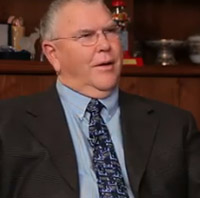2010 Tax Relief Act creates a 100% writeoff for heavy SUVs used entirely for business: HISTORY REPEATS ITSELF
[vc_row][vc_column][vc_column_text]OLD RULE:
A calendar year taxpayer bought a $50,000 heavy SUV in June of 2010 and used it 100% for business in 2010. It may write off $40,000 of the cost of the vehicle on its 2010 return, as follows:
… $25,000 expensing deduction (Sec. 179(b)(6) Limit, see below under “History”), plus
… $12,500 of bonus first year depreciation ($50,000 − $25,000 of expensing × .50 = $12,500), plus
… $2,500 of regular first-year depreciation ($50,000 − $25,000 of expensing − $12,500 bonus depreciation × .20 = $2,500.
NEW Rule:
Now 100% first-year writeoffs for heavy SUVs. Under the 2010 Tax Relief Act, the bonus first-year depreciation percentage is 100% (instead of 50%) for bonus-depreciation-eligible “qualified property” that is generally (1) placed in service after Sept. 8, 2010 and before Jan. 1, 2012, and (2) acquired by the taxpayer after Sept. 8, 2010 and before Jan. 1, 2012. Qualified property includes property to which MACRS applies with a recovery period of 20 years or less. Autos and trucks are 5-year MACRS property and thus qualify for bonus depreciation (assuming business use exceeds 50% of total use). (Code Sec. 168(k)(2)(D))
Thus, a taxpayer that buys and places in service a new heavy SUV after Sept. 8, 2010 and before Jan. 1, 2012, and uses it 100% for business, may write off its entire cost in the placed-in-service year. There is no specific rule barring this result for heavy SUVs. Thus, if the taxpayer in our illustration above had bought the heavy SUV in, say, October of 2010, it could write off the full $50,000 cost of the vehicle on its 2010 return.
History Repeats Itself
The old George Bush Loophole that, for about 2 years, allowed people to write-off 100% of the cost of their Hummer used for business…that was ended 10/22/2004:
Heavy SUVs—those with a GVW rating of more than 6,000 pounds—are exempt from the luxury auto dollar caps because they fall outside of the definition of a passenger auto in Code Sec. 280F(d)(5).. To deal with this “SUV tax loophole,” the American Jobs Creation Act of 2004 (Public Law 108-357) imposed a limit on the expensing of heavy SUVs. Under Code Sec. 179(b)(6), not more than $25,000 of the cost of a heavy SUV placed in service after Oct. 22, 2004 may be expensed under Code Sec. 179. These rules apply, with some exceptions, to SUVs rated at 14,000 pounds GVW or less.
If you use your SUV less than 100%, all these rules apply based on the percentage of business use for the SUV. So, if based on mileage during the year, you use an SUV 80% for business and 20% for personal use, you would apply these rules to the 80% business use portion of the costs of the SUV. Below 50% business use, no Sec. 179 deduction is allowed.
Political comment: On this issue, Presidents Obama and Bush came to the same conclusion, which upset many people who can’t afford heavy SUVs and write them off in the 1st year as a tax deduction.
Feel free to call or write us if you need assistance with this issue.[/vc_column_text][/vc_column][/vc_row]
Wally Hawley on American Dreams
Interview Transcript of: Wally Hawley on American Dreams Alan This is Alan Olsen American Dreams, the keys to life success where we talk about how to live the life that you want to live. Nadine And this is needing camera. What are your dreams? What do you want out of life and what define…
CA Tax Issues | Kitty Wright
CA Tax Issues | Kitty Wright We hope you found this interview about “CA Tax Issues | Kitty Wright” enjoyable. To receive our free newsletter, contact us here. Subscribe our YouTube Channel for more updates. This transcript was generated by software and may not accurately reflect exactly what was said. Alan Olsen, is the Host of the…
The Jelly Belly Legacy | Herman G Rowland
Episode Transcript of: The Jelly Belly Legacy | Herman G Rowland Alan Welcome back. I’m here today visiting with Pam rollin. He’s the chairman of the board of the Jelly Belly company here in Fairfield, California. Welcome to today’s show. Herman Thank you, Alan. Glad to be here. Alan So tell me your background,…
State of the Valley | Roger Royse
State of the Valley | Roger Royse Transcript: Welcome to American Dreams keys to success with your host, Alan Olsen. Alan 0:05 Welcome back. I’m here today speaking with Russell Hancock. He’s the president and CEO of joint ventures, Silicon Valley. Welcome to today’s show. Thank you. Delighted to be Russell, give me some background…




